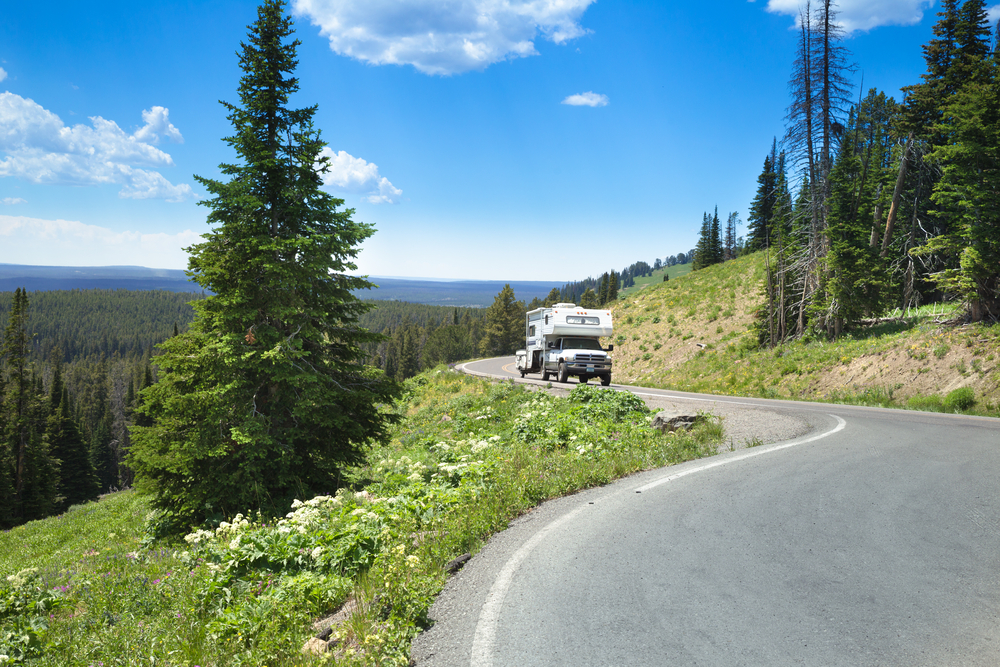
RV Checklist for Your Next Road Trip
Tuesday, August 21, 2018
Road trips are rapidly becoming the go-to adventure for people around the country. Whether you are by yourself, with your family, or taking off with your friends, road trips are a wonderful way to see new parts of the country from the comfort of your own vehicle. Having an RV can provide the opportunity to eat, sleep, and live wherever you happen to be and forgo the added expense of hotels and restaurants.
There are a few things that you should keep in mind before embarking on your first road trip of the season, whether you are a beginner to the world of RVing or you are a seasoned road tripper. From knowing your route to having an up-to-date toolbox, nothing should be overlooked to make your journey go smoothly.
Here are a few items you should check off your list before you hit the road on your RV road trip.
-
Know your RV
There are RVs of all shapes and sizes on the road today. Some are small and economical, while others rival houses in the number of amenities and luxuries they hold. Before you make your selection, it’s important to know what you are getting into and what you want regarding your vehicle.
Before you rent or buy, it’s good to know what type of RV you want to purchase. This will first allow you to know what licensing you need to drive it. You can also learn other important considerations like included amenities and what can be done with each type of RV, like towing capability.
- Class A RVs are the biggest, and often have the most luxuries attached to them.
- Class B RVs are a smaller, camper van-style vehicle.
- Class C RVs are mid-size Motorhomes that can be customized in many ways.
- Travel trailers are bigger in terms of living space and can be towed behind another vehicle.
- A 5th wheel travel trailer attaches to a towing vehicle differently than a regular travel trailer but offers similar size and living amenities.
- Folding or tent trailers expand out to offer additional living space for the convenience of a smaller travel trailer.
- Sport utility RV trailers can haul smaller vehicles like ATVs while also providing a small living space in the trailer.
-
Check Your RV
Before you head out on your road trip, give your RV a look over. Make sure that your air conditioning and heater are in working order, along with your water heater, refrigerator, electrical systems, plumbing, and any other major system that you might need. Check to make sure the windshield wipers are functioning and that all your lights are working.
Ensure that your spare tire is ready to go and carry spare fuses in it in case one of them blows out. Make sure you have all the tools you need to fix common problems. You might find it helpful to also carry jumper cables, extra nuts and bolts, a spare fan belt, light bulbs, and other items that might be unique to your particular RV model. This way, if something does need fixing, you don’t necessarily have to go to a mechanic or try to find an auto part store in the middle of nowhere.
-
Drive Your RV
Of course, an essential part of going on a road trip is actually driving your RV. If you have your own RV and drive it infrequently or frequently, it can still be helpful to take it out for a test drive prior to taking a long trip. You can work out any kinks in the vehicle, get used to driving it again, and see if anything in the RV shifts when going around corners and up hills.
This test drive gives you the chance to pinpoint any problems you might need to fix before going on your road trip so that you aren’t forced to make unscheduled stops along the way.
Finally, make sure you have a working GPS and maps to take with you on your trip. Map out campsites or other locations that are suitable for RVs before you go.
-
Insure Your RV
RV Insurance helps protect your RV in case of accidents, breakdowns, and other damage, whether it is your fault or another driver’s. Factors that can influence the cost of your insurance include:
- Where you live
- What kind of RV you have
- How often you drive your RV
- Your driving history
RV insurance is essential coverage for your vehicle, which is also your home on a road trip. RV insurance can cover your personal belongings in the RV, and your insurance can extend to taking your RV on trips, in addition to covering it when it is in storage at home.
To learn more about RVs and RV insurance, contact our team at www.protectiveagency.com or call us at (877) 739-9367. Our licensed, friendly insurance agents will be happy to answer any questions you have.
